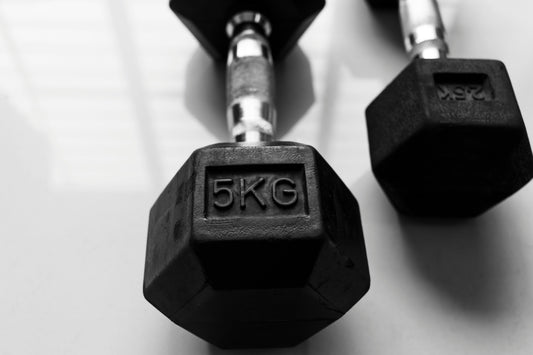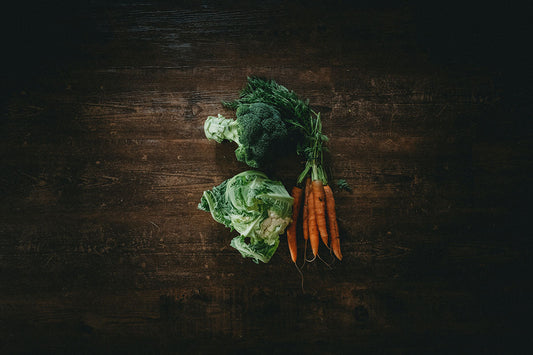7 Takeaways About Dairy from My Book Food: What the Heck Should I Eat?

If someone handed you a beverage that you knew would cause you weight gain, bloating, acne, gas, allergies, eczema, brittle bones, and possibly even cancer, would you drink it? Would you chug three cups of that liquid daily and give two cups of it to your children?
Probably not.
Yet the federal government tells us that milk is a perfect food that Americans should lap up daily, three glasses to be exact—in spite of a large (and growing) body of research showing its lack of benefits and awful side effects. I agree, it is nature’s perfect food…but only if you are a calf!
And the government has recently been called to task for their corrupt dietary guidelines in a prestigious report from the National Academy of Sciences, showing that the members of the guidelines committee have strong connections to the dairy industry. And that there is no good science to back up the recommendations to drink three glasses of milk a day. Schools can’t get government lunch money unless they offer the kids milk, which usually ends up being sugary low-fat chocolate or strawberry milk—almost as bad as a soda.
Humans are the only species that continues to drink milk after weaning. And the milk we drink today is not what our grandparents drank.
Even though cow’s milk today contains dozens of reproductive hormones, allergenic proteins, antibiotics, and growth factors, some of which are known to promote cancer, the dairy industry wants us to believe that their cows are happily producing milk and grazing through green pastures.
For the most part, that couldn’t be further from the truth, and in Food: What the Heck Should I Eat? I reveal exactly why.
Dairy is a contentious food, and my new book tackles the pros and cons about whether it belongs in your diet. And which dairy is actually okay to eat. The takeaways you’ll get from this chapter of my book include:
- With dairy, every side gets it wrong. The government’s dietary guidelines tell us to drink three cups of milk daily for adults and two cups for kids. Scientists and nutritionists warned us against dairy products under the premise that saturated fat causes heart disease. They are all wrong. And their bad advice has resulted in a generation of kids growing up on sugary, low-fat or fat-free chocolate milk, which is worse than whole milk in every single way. Remember that famous ad slogan, “Milk: It does a body good”? Well, it doesn’t. Science shows low-fat makes kids fatter.
- It isn’t just lactose intolerance. If you’re lactose intolerant or sensitive to dairy, then you should avoid it at all costs. But even if you are tolerant, milk shouldn’t be a major part of your diet. Milk from conventionally raised cows is full of hormones, chemicals, and inflammatory compounds. Stay away from it and reduce your intake of all other industrially produced cheeses or dairy products. “American” cheese, that weird orange plastic tasting stuff on all the burgers and sandwiches, actually can’t legally be called cheese because it is less than 50% cheese. It has to be called “American Slices”.
- There’s no evidence that we need milk to strengthen our bones. In fact, countries with the lowest milk consumption have the lowest rates of osteoporosis and fractures, while those with the highest dairy consumption and calcium intake have the highest rates of fractures—a phenomenon called the calcium paradox. In Food: What the Heck Should I Eat?, I’ll tell you how to build strong bones and so much more without touching a glass of milk.
- We can get adequate levels of calcium from other foods. Here’s the dirty little secret of the dairy industry: Many food sources contain more calcium than milk, such as sardines, arugula, and tahini. In Food: What the Heck Should I Eat?, I’ll tell you about the best sources of calcium without the hormones, allergens, and other baggage that comes with dairy.
- A little bit of butter is healthy. For a long time, butter got a bad rep. But butter from pastured, grass-fed cows or goats is on my healthy fats and oils list in Food: What the Heck Should I Eat? That doesn’t mean you should eat butter with abandon. But it’s fine to eat it like our grandparents did. In fact, a study of 600,000 people eating butter for the equivalent of 6.5 million patient years found no link between butter and heart disease and an association between increased butter intake and a lower risk of type 2 diabetes.
- Some varieties of cheese are also okay. Good news: It’s okay to eat some cheeses in small amounts, while you’ll want to avoid others like the plague. Should you eat raw cheese, or are goat and sheep cheese any different? I’ll reveal which ones to eat and which to avoid in Food: What the Heck Should I Eat?
- Goat’s milk can be a good alternative to cow’s milk. The form of casein in goat’s milk (A2 casein) is not inflammatory, unlike the casein prevalent in most cow’s milk (A1 casein) that creates gut issues, allergies, eczema, and acne. Goat’s milk is also easier to digest so it doesn’t cause stomach discomfort for most. It also has high levels of medium-chain triglycerides (MCTs), which boost metabolism and brain function, and higher levels of vitamin A, which is good for your skin.
In my book Food: What the Heck Should I Eat?, out February 27, I’ll provide you with everything you need to know to make the most informed decisions about dairy, including what products are okay and smart alternatives. Ultimately, with dairy like any other processed food, here’s a good rule to live by: If your great grandmother didn’t eat it, then you shouldn’t either.
In Food: What the Heck Should I Eat? I uncover the truth about the food we actually eat—what is healthy and not in each group of foods we eat—meat, poultry and eggs, dairy, beans, grains, veggies, fruit, nuts and seeds, beverages, and more, and guide to you to a science-based, sensible way of eating for life that keeps you, our planet, and our society healthy. I also address the environmental and social impact of the food we eat.
If you have ever woken up wondering the heck you should eat, this book is for you. Check out the trailer and order from Amazon, Barnes and Nobles, or get it at your local bookstore. And get a free video of the 4 biggest food lies out there!
Wishing you health & happiness,
Mark Hyman, MD







